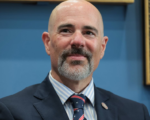Washington State University (WSU) is set to tackle the rising issue of cannabis misuse among young adults, thanks to a substantial grant from the National Institutes of Health (NIH). The $670,000 funding will support a three-year project aimed at educating college students in states where cannabis is legal, specifically Washington, Illinois, and New York.
Tackling Cannabis Misuse with Targeted Education
Led by researchers Stacey Hust and Jessica Willoughby, the initiative focuses on the growing popularity of cannabis edibles. These products, while increasingly common, present unique challenges due to their delayed onset of effects and the difficulty users often face in measuring appropriate portion sizes.
“Our research has shown that many young adults do not understand the THC content in edibles or how to properly gauge serving sizes,” Hust explained. This misunderstanding can lead to accidental overconsumption, resulting in adverse health effects and increased misuse.
The project aims to develop a technology-based intervention that educates young adults about the risks associated with cannabis edibles. By leveraging digital tools, the researchers hope to reach a broad audience and provide accessible information that can help mitigate misuse.

Project Scope and Implementation
The NIH-funded study will span three years, focusing on college campuses in three states where cannabis is legal. The choice of Washington, Illinois, and New York allows the project to address diverse regulatory environments and cultural attitudes towards cannabis use.
Key Objectives:
- Develop Educational Tools: Create digital resources that inform students about the risks of cannabis edibles.
- Test Intervention Effectiveness: Implement and evaluate the impact of these tools in real-world settings.
- Promote Safe Consumption Practices: Encourage responsible use through increased awareness and understanding.
The researchers plan to collaborate with local universities to integrate these educational tools into existing health and wellness programs. By doing so, they aim to create a sustainable framework that can be adapted and expanded beyond the initial study period.
The Rise of Cannabis Edibles and Associated Risks
Cannabis edibles have become a significant segment of the cannabis market, offering an alternative to smoking or vaping. However, their popularity comes with challenges, particularly among younger users who may lack comprehensive knowledge about safe consumption.
“Adolescents and young adults are not necessarily educated consumers when it comes to cannabis,” Hust noted. The delayed effects of edibles can lead to users consuming more than intended, thinking they haven’t taken enough, which increases the risk of negative experiences such as anxiety, paranoia, and impaired cognitive functions.
Common Misconceptions:
- Onset of Effects: Many users are unaware that edibles can take up to two hours to produce noticeable effects.
- Dosage Control: Portion sizes in edibles can be inconsistent, making it difficult for users to manage their intake accurately.
- THC Content Awareness: Users often do not know the exact THC concentration in the products they consume.
Addressing these misconceptions is crucial for reducing the potential for misuse and ensuring that young adults make informed decisions regarding cannabis consumption.
Leveraging Technology for Effective Education
The project’s emphasis on a technology-based intervention reflects the researchers’ understanding of the digital habits of young adults. By utilizing platforms that students frequently use, the initiative aims to deliver impactful and engaging educational content.
Planned Technological Approaches:
- Interactive Mobile Apps: Tools that provide real-time information and support for safe cannabis use.
- Online Workshops and Webinars: Virtual sessions that educate students about the effects and safe consumption practices of edibles.
- Social Media Campaigns: Leveraging popular social media platforms to disseminate key messages and engage with the student community.
These approaches are designed to meet students where they are, making the information both accessible and relatable. The integration of technology ensures that the educational efforts are scalable and can reach a wide audience effectively.
Anticipated Outcomes and Future Directions
The NIH-funded project at WSU aims to set a precedent for how educational interventions can address substance misuse among young adults. By focusing on cannabis edibles, the researchers hope to fill a critical gap in current public health strategies.
“We are excited about the potential impact of this project,” Willoughby stated. “Educating young adults about the risks of cannabis edibles is a vital step in promoting responsible use and preventing misuse.”
Upon completion, the project is expected to provide valuable insights into the effectiveness of technology-based interventions in reducing cannabis misuse. These findings could inform future public health initiatives and contribute to the development of best practices for cannabis education programs nationwide.
David Johnson is a respected writer known for his expertise in crafting compelling articles about cannabis. With a passion for exploring the intersection of cannabis, health, and wellness, he sheds light on the therapeutic properties and potential uses of this versatile plant. David’s in-depth analysis and thought-provoking commentary offer readers a deeper understanding of the evolving landscape of cannabis legislation, consumption methods, and industry trends.








